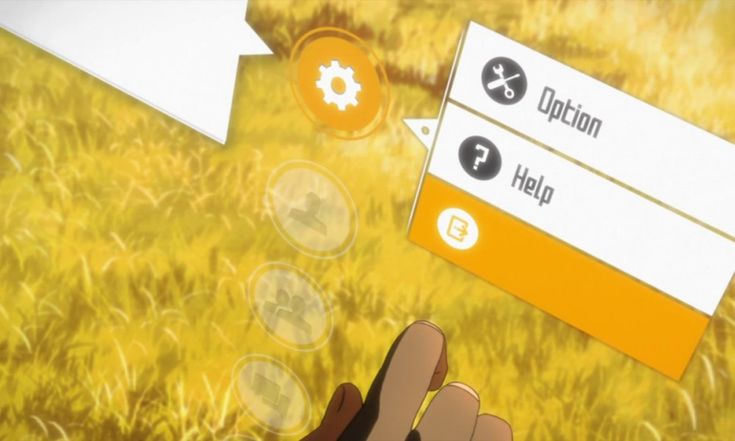

Well, time to install two new add-ons: Return YouTube View Counts and Return YouTube Upload Dates.
Somebody please make those.


Well, time to install two new add-ons: Return YouTube View Counts and Return YouTube Upload Dates.
Somebody please make those.
OP didn’t mention games that have Denuvo in them. They simply mentioned pre-ordering games.
And before anyone says this is a post about Denuvo, OP’s comment was phrased in such a way that it could sound like, “Why would anyone pre-order games in the first place in 2024, regardless of whether or not it has Denuvo?”
I said I hardly ever buy PC games.
If I’m interested in a PC-only game, I check GOG first, then I check Steam. I will rarely ever pre-order a PC game.
Edit: Also, I appreciate the (probably unintentional) Attack on Titan reference.
ten years at least.
If you haven’t seen the show, don’t look it up. It’s a spoiler.
Honestly, if I can, I always get physical. If I buy a digital copy, there’s no guarantee that the store I bought it from won’t take it back or something like that.
Yeah, it’s still pretty common for big publishers to sell their games physically. Games from smaller devs that self-publish are usually only sold digitally, though they can sometimes end up getting published physically later on if they get popular enough.
Edit: Or were you talking about Best Buy and Amazon selling physical games?
That’s actually a good example of a game I initially pre-ordered but then cancelled because I didn’t like what I saw in later trailers.
If I can, I try to get my pre-orders through Best Buy’s in-store pickup, which means I can simply walk in the store and pickup my order. It’s essentially the same as going in and buying the game on launch day, except I’m guaranteed a copy that I’ve already paid for. If I don’t pre-order, there’s a chance the store either won’t get any copies by release day or they may sell out of them by the time I get there after work.
Also, try as I might, there’s been several times where I haven’t been able to get a copy from Best Buy for one reason or another. That leaves Amazon as my only choice. So, in that case, pre-ordering means I’ll get my package on launch day, typically in the early afternoon.
So, for me, it’s less about the pre-order bonuses and more about the logistics. I want to play a game on the day it comes out. I’ve usually planned to have free time specifically to play the game on release. So pre-ordering means I spend less time looking for a copy of a game I already know 100% that I’ll enjoy and more time actually playing the game.
(I apologize for the really long comment.)
I still pre-order, but I’m very selective. I only pre-order games I am 100% sure I’ll enjoy it.
If something comes up in the months before release that makes me question whether I’ll enjoy the game or not, goodbye pre-order.
There’s also very few companies and franchises I trust enough to pre-order from. They’re mainly the Kingdom Hearts (but only the “main” games; I’m not buying that rhythm game) and Persona (also only the main games, not the spin-offs) series. I also pre-ordered Metaphor (because I trust Atlus as a developer after having played all three games in the modern Persona series, and because I liked what I saw in trailers and what I played in the demo) and am actually enjoying it more than Persona.
To put it another way, I pre-order games from developers and directors I 100% trust to deliver a good game that I will enjoy immensely. Any less than that, and I will not pre-order. Like I said, I’m very selective. If I haven’t played anything from the developer before, I won’t pre-order. If they’ve broken my trust in some way, I won’t pre-order. If I don’t like what I see in the trailers or what I hear in the interviews, I won’t pre-order. If I see that DRM will negatively impact my play experience (which admittedly doesn’t have much of a chance of happening since I rarely play on PC), I won’t pre-order.
To be fair, double spaced where there isn’t supposed to be one is really noticeable.
That’s how my “I’m stuck in my own bed and can’t move or talk” nightmare usually begins.
One day, he’s going to try to log out, and the logout button will be missing.
Then the only way he’ll be able to wake up is by beating all 100 floors of his dream. But if he dies in the dream, he dies in real life.



Linux, politics, and the occasional meme that doesn’t fit in either of the other two categories.
It dis-assembled the computer!


Oh, we had something like this in college. The vendor would load up the… well, actually, it was more like a big version of those little coolers you see in the checkout line in grocery stores—the ones with the sodas and stuff in them. Anyway, the vendor would load them up every couple days. It’d have sandwiches, salads, puddings (which were actually really popular), sodas, Gatorade, water, and a bunch of other stuff. If we wanted something, we would just get it out, scan the barcode on the scanner attached to the handle, tap our phones or cards to pay, and be on our way.


CANNED BREAD
Since you mentioned it, I’m obligated to link this clip.


It’s worth noting that the saved pages are the only thing that are back for now. Their other services have not yet been brought back online.


and complained on mastodon that it’s stupid design that mod logs are public. [Screenshot]
Maybe they should’ve, you know, looked at the site for 2 minutes before signing up. The modlog is linked at the bottom of every page.


Like I said, the illustration does break down.


I think OP is saying that, while you can buy a book to read it, you do not own the copyright to that book. They’re saying it’s basically the same idea with GOG.
The illustration does break down, but I think their point still stands.
I’ve had the odd stability issue every now and then. (There was one ongoing issue with my wifi that was caused by a bug in my manufacturer’s driver, but that was years ago on Windows 10, and they eventually fixed it.) But I honestly haven’t had any issues caused specifically by Microsoft recently that I can recall.
Any problems caused by major features updates are usually solved by simply reinstalling the driver. (And I haven’t had any of those sorts of problems in at least a couple years.)